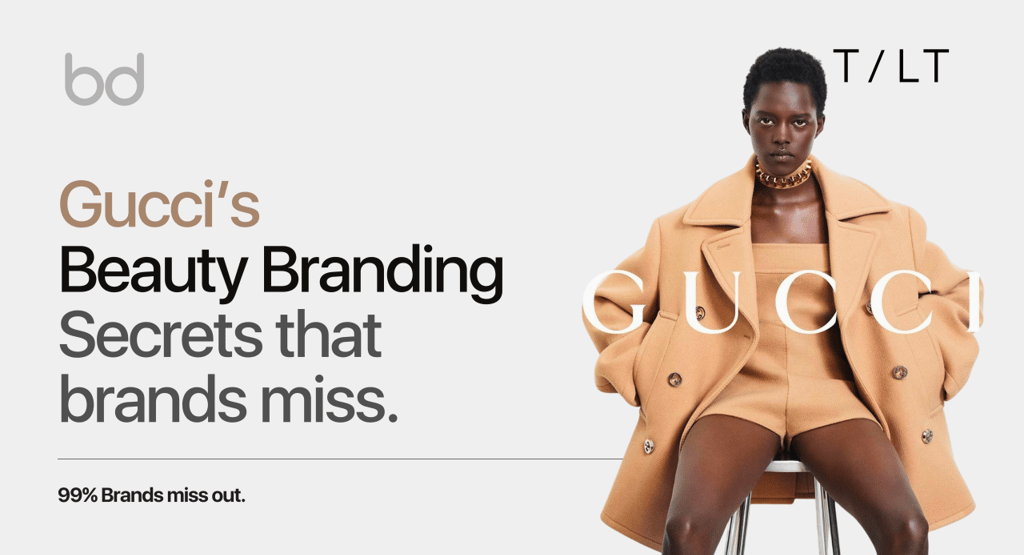Gucci Beauty’s Branding Secrets: What 99% of Luxury Brands Miss
So what makes Gucci Beauty’s branding so powerful, and what are 99% of other luxury brands missing? Let’s break it down through the lens of clarity, creativity, and most importantly, brand alignment.
Brand Blinks Global
5 min read


In a world overflowing with luxury beauty brands, few stand out without shouting. Gucci Beauty is one of them. From its unexpected colour stories to nostalgic packaging and inclusive narratives, the brand has managed to position itself as bold, beautiful, and unmistakably Gucci, without relying solely on legacy.
So what makes Gucci Beauty’s branding so powerful, and what are 99% of other luxury brands missing? Let’s break it down through the lens of clarity, creativity, and most importantly, brand alignment.
The Rebirth of Gucci Beauty
Launched in 2014 and rebooted in 2019 under creative director Alessandro Michele, Gucci Beauty didn't follow the “classic luxury beauty” playbook. Instead, it rewrote the rules.
While most luxury brands chase perfection, symmetry, and restraint, Gucci Beauty embraced imperfections, character, and contrast.
This wasn’t just a design choice. It was a brand strategy rooted in culture, inclusivity, and provocation.
What Is Gucci Beauty’s Core Brand Philosophy?
At its core, Gucci Beauty challenges the conventional idea of beauty. It celebrates self-expression over symmetry, diversity over sameness, and story over surface.
This philosophy is clear across:
+ Their diverse cast of campaign faces
+ Retro-style, intentionally imperfect product packaging
+ Messy mascara looks and chipped nail polish in editorials
This is not marketing fluff. It’s how brand values get translated into product, visuals, and brand tone, something many brands fail to do consistently.
The Visual Identity: Imperfect Beauty as a Statement
Gucci Beauty’s design choices are anything but minimal:
+ Vintage lipstick tubes and blush compacts feel like heirlooms
+ Fonts are maximalist and sometimes ornate
+ Campaigns often use bold, clashing colour palettes
This contradicts most luxury brands, which follow a safe, elegant, white-space-heavy visual code. But Gucci’s risk pays off.
Their visuals speak not to everyone, but very strongly to their intended audience. And that’s the hallmark of a successful branding audit: an alignment over approval.
Storytelling That Doesn’t Sell but Seduces
Gucci doesn’t list benefits. It builds narratives.
From campaigns like “Makeup is a playground” to films that feel more like arthouse cinema than ads, the brand does something rare: it trusts its audience to feel, not just consume.
This is what most luxury brands miss: they talk at the consumer rather than invite them into a world.
Brand Voice: High Fashion Meets Rebellion
Gucci Beauty's tone is:
+ Poetic, but not pretentious
+ Confident, but not cold
+ Rich in metaphor, but grounded in feeling
Their voice permits breaking norms, making it feel like you're not just buying a product, but joining a creative revolution.
This kind of voice doesn’t happen by accident. It’s the result of clearly developing a brand strategy and aligning every piece of communication with it.
Where Other Luxury Brands Get It Wrong
Let’s get specific. Here’s what Gucci Beauty does, and others often don’t.
Gucci Beauty: 99% of Luxury Brands
Imperfect is beautiful: Flawless perfection is non-negotiable
Narrative over product push: Feature-first marketing
Emotional tone: Technical, cold tone
Diverse representation: Conventional beauty norms
Bold visual contrasts: Safe, neutral colour palettes
Brand Audit Insights from Gucci Beauty
If we were to conduct a brand audit on Gucci Beauty, here’s what we’d learn:
+ Positioning: Clearly distinct from other high-end beauty brands
+ Voice: Cohesive across social, campaigns, packaging, and website
+ Visuals: Bold, recognizably unique, never generic
+ Customer experience: Feels like storytelling, not selling
+ Team alignment: Likely high, given the brand coherence across all channels
These are the same criteria you'd explore in any effective brand auditing process.
Gucci Beauty as a Brand Audit Example
A brand audit example like Gucci Beauty shows the value of strategic risk.
When they relaunched in 2019, many questioned the quirky packaging and editorial tone. But the results speak volumes:
+ Gucci’s beauty division saw 30% YoY growth between 2020 and 2022 (LVMH Group reports)
+ Its lipstick lines went viral on platforms like TikTok due to packaging and tone
+ Engagement rates on Instagram consistently outperform other beauty giants like Christian Dior Couture Beauty
Why? Because every layer is designed with clarity and intent.
Luxury Brand Audit Checklist
Want to see if your luxury brand has Gucci-level alignment? Start here:
Area: Ask Yourself
Positioning: Do we stand for something beyond “luxury”?
Messaging: Is our tone emotionally intelligent, not robotic?
Visual Identity: Do our assets tell a story or just “look good”?
Packaging: Does it feel like art, or like a template?
Team Clarity: Can everyone explain what makes us different?
Cultural Relevance: Are we reflecting today’s values or yesterday’s definitions?
If you said “No” to 2 or more, you may need a reset.
Define A Brand Differently
Too many luxury brands equate branding with polish.
Gucci Beauty shows us that real luxury today is about personality, cultural awareness, and courage. It’s not about looking perfect, it’s about being real, bold, and intentional.
If you're a founder, brand leader, or creative, remember: Don’t just design. Define. Your brand should feel like no one else, not even in the same category.
FAQs
Q1: What is a brand audit in luxury beauty? It’s a review of how your brand is performing across visuals, messaging, tone, team alignment, and customer perception, especially compared to competitors.
Q2: Can a brand audit be done in-house? Yes, but external experts often bring more objectivity and better frameworks, like the ones used in a formal brand audit template.
Q3: How often should luxury brands do an audit? Every 12–18 months, or before launching new collections or repositioning.
Q4: Is there a standard format for doing this? While every agency may have their style, most follow a structured brand audit format covering positioning, voice, design, customer experience, and internal alignment.
Q5: Are brand audit services worth it for established brands? Absolutely. Even iconic names like Gucci benefit from realignment when entering new markets or cultural shifts.
© 2026 BRNDxMORPH Media WWD Private Limited. All rights reserved.
Brand Blinks Global® | BBG is an independent global brand consulting and transformation company.
The trademarks, logos, and service marks displayed on this site are the property of their respective owners.
"Brand Blinks Global® | BBG," "Brand Blinks®," "Made for the Uncommon®," and the "bd®" logo are trademarks or registered trademarks of BRNDXMORPH Media WWD Private Limited.


